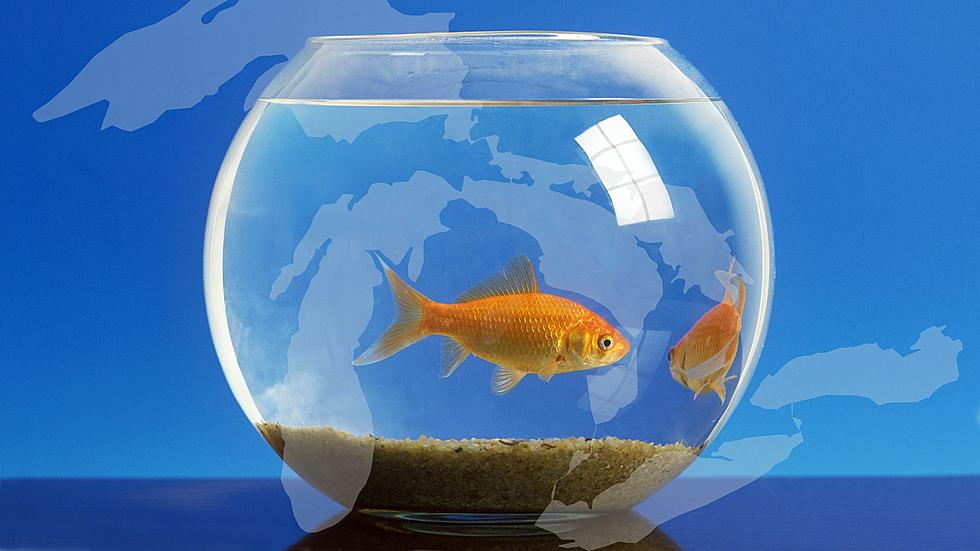
BEWARE: Feral Goldfish In Danger Of Invading The Great Lakes
We often talk about what lurks in the depth of the Great Lakes. Most notably, Lake Michigan, which has rumors of Sharks and Alligators in it, OR Lake Erie's "Bessie" rumors. Not to mention, the beasts we know about like the Lake Sturgeon, which can grow up to 7 feet long.
But there's one fishy culprit I bet nobody was prepared to see when out fishing for whitefish and Sturgeon in Michigan waterways... Goldfish.

Yes, Goldfish have begun invading waterways around Michigan, and are dangerously close to making their way into the Great Lakes. While this might not seem even the slightest bit intimidating, it's actually a possible detriment to the environment and ecosystem.
How Did Goldfish Get Into Local Waterways?
It's interesting trying to pin down exactly why goldfish are growing in numbers across Michigan, but experts are pointing to two possible culprits.
People are still dumping unwanted goldfish pets into creeks, rivers, ponds, and lakes rather than continuing to take care of them through their full life cycle. People don't realize, when they properly take care of goldfish, they can live up to 15 years. For some, that's too long of a commitment, so they will "dispose" of the fish by releasing them into area waterways.
The other contributing factor could be a decline in invasive carp species. Area Wildlife groups have been working to deter growth in these destructive fish, and in doing so, have allowed feral goldfish to grow in numbers.
Are Goldfish THAT Harmful To The Ecosystem?
You would think goldfish wouldn't cause that big of an issue, but the problem is, goldfish grow with their environment. If you keep them in a small bowl at home, they won't grow more than a few inches long. But if you put them in a larger body of water, they can grow quite big, sometimes up to a foot or more in length.
The bigger they are, the more then eat. And if there's a LOT of them, then food supplies for other species could start to dwindle.
Plus, Goldfish are VERY resilient. Experts call them a "near perfect invasive species," since they can live in a variety of temperatures and oxygen conditions, and reproduce faster than predators can take them out.
Hugh MacIssac is a researcher in Windsor, Ontario, Canada, and has been studying the fish.
"None of that is ecologically or aesthetically desirable. If we can geolocate where they are, we can use selective fishing to eliminate or reduce them."
He, along with other other researchers like Christine Boston have been working to track the feral goldfish's habits so they can properly tag, and manage their growth in area waterways.
"We've seen significant drops in invasive carp populations, we know control works. If we can get our hands on them, we can make a real dent in their population."
Thankfully, large amounts of feral goldfish haven't been found in the Great Lakes as of yet, but there's no telling what lies in the murky deep.
Michigan's Ugliest Creature: The Fish With Human Teeth
Gone Fishing? Never Eat These Fish Caught in Southwest Michigan
Gallery Credit: Jacob Harrison

